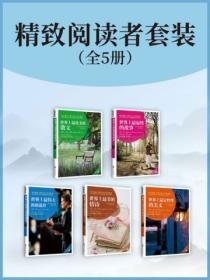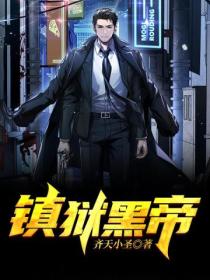生命的加油站
我生命中最重要的一天The Most Important Day in My Life
海伦·凯勒/ Helen Keller
海伦·凯勒(1880—1968),美国著名残疾人作家、教育家,生于美国亚拉巴马州。两岁时,一场疾病使她变成了盲、聋、哑人。后来,她的父母请来家庭教师莎莉文女士对她进行特殊教育。同时,凯勒通过自身顽强的努力,于1904年毕业于麻省波士顿的拉德克利夫学院。后来,凯勒专职于写作和残疾人教育事业。她一生共写了19本书,其中《我生活的故事》最为著名。
Practicing for Better Learning
Read the article quickly and answer the following questions.
1. What was the first word Helen learned?
2. Why did Helen feel angry and sad?
The most important day I remember in all my life is the one on which my teacher, Anne Mansfield Sullivan, came to me. I am filled with wonder when I consider the immeasurable contrasts between the two lives which it connects. It was the third of March, 1887, three months before I was seven years old.
On the afternoon of that eventful day, I stood on the porch, dumb, expectant. I guessed vaguely from my mother’s signs and from the hurrying to and fro in the house that something unusual was about to happen, so I went to the door and waited on the steps. The afternoon sun penetrated the mass of honeysuckle that covered the porch, and fell on my upturned face. My fingers fingered almost unconsciously on the familiar leaves and blossoms which had just come forth to greet the sweet southern spring. I did not know what the future held of marvel or surprise for me. Anger and bitterness had preyed upon me continually and a deep languor had succeeded this passionate struggle.
Have you ever been at sea in a dense fog, when it seemed as if a tangible white darkness shut you in, and the great ship, tense and anxious, groped her way toward the shore with plummet and sounding-line, and you waited with beating heart for something to happen? I was like that ship before my education began, only I was without compass or sounding-line,and had no way of knowing how near the harbour was.“Light! Give me light!”was the wordless cry of my oil, and the light of love shone on me in that very tour.
I felt approaching footsteps, I stretched out my hand as I supposed to my mother. Some one took it,and I was caught up and held close in the arms of herwho had come to reveal all things to me, and, more than all things else, to love me.
The morning after my teacher came she led me into her room and gave me a doll. The little blind children at the Perkins Institution had sent it and Laura Bridgman had dressed it; but I did not know this until afterward. When I had played with it a little while, Miss Sullivan slowly spelled into my hand the word“d-o-l-l.”I was at once interested in this finger play and tried to imitate it. When I finally succeeded in making the letters correctly I was flushed with childish pleasure and pride. Running downstairs to my mother I held up my hand and made the letters for doll. I did not know that I was spelling a word or even that words existed; I was simply making my fingers go in monkey-like imitation. In the days that followed I learned to spell in this uncomprehending way a great many words, among them pin, hat, cup and a few verbs like sit, stand and walk. But my teacher had been with me several weeks before I understood that everything has a name.
One day, while I was playing with my new doll, Miss Sullivan put my big rag doll into my lap also, spelled“d-o-l-l”and tried to make me understand that“d-o-l-l”applied to both. Earlier in the day we had had a tussle over the words“m-u-g”and“w-a-t-e-r.”MissSullivan had tried to impress it upon me that“m-u-g”is mug and that“w-a-t-e-r”is water, but I persisted in confounding the two. In despair she had dropped the subject for the time, only to renew it at the first opportunity. I became impatient at her repeated attempts and, seizing the new doll, I dashed it upon the floor. I was keenly delighted when I felt the fragments of the broken doll at my feet. Neither sorrow nor regret followed my passionate outburst. I had not loved the doll. In the still, dark world in which I lived there was no strong sentiment or tenderness. I felt my teacher sweep the fragments to one side of the hearth, and I had a sense of satisfaction that the cause of my discomfort was removed. She brought me my hat, and I knew I was going out into the warm sunshine. This thought, if a wordless sensation may be called a thought, made me hop and skip with pleasure.
We walked down the path to the well-house, attracted by the fragrance of the honeysuckle with which it was covered. Some one was drawing water and my teacher placed my hand under the spout. As the cool stream gushed over one hand she spelled into the other the word water, first slowly, then rapidly. I stood still, my whole attention fixed upon the motions of her fingers. Suddenly I felt a misty consciousness as of something forgotten—a thrill of returning thought: and somehow the mystery of language was revealedto me. I knew then that“w-a-t-e-r”meant the wonderful cool something that was flowing over my hand. That living word awakened my soul, gave it light, hope, joy, set it free! There were barriers still, it is true, but barriers that could in time be swept away.
我有生以来最重要的一天,就是安妮·曼斯菲尔德·莎莉文老师来到我身边的那天。那是1887年3月3日,还差三个月我就七岁了。从这一天起,我将开始全新的生活,一想到这儿,我的心中满是惊奇。
那个重要日子的午后,我站在走廊上,一声不吭,满怀期待。从母亲的手势和其他人忙来忙去的样子,我隐约感到要有不同寻常的事情发生。于是,我来到门口,站在台阶上默默地期待着。午后的阳光穿透覆盖在门廊上的一大片金银花,洒在我微微仰起的脸上。我的手指不?意间触到那熟知的花叶上——南方的花朵绽放着来迎接可爱的春天。我不清楚自己的未来会有什么惊喜和奇迹,愤怒和苦痛折磨了我已有一段时间,这种经历过后,我感到心力交瘁。
朋友,你是否曾在茫茫大雾的情况下,还在海上航行?如同一层可以触摸到的白色黑暗将你包围,大船凭借着测深锤和探深绳,紧张忧虑地在大海中探索着上岸的道路。你的心怦怦直跳,期待这将要发生的一切?在我没有接受教育之前,我就如同这样的航船,只不过我既没有指南针,也没有探深绳,无法知道距离岸边还有多远。“光明!光明!快给我光明!”我在心灵深处无声地呼喊。刚好在此时,爱的光明照耀到我的身上。
我听到有脚步向我走来。本以为是母亲,我便马上伸出双手。有个人握住了我的手,把我紧紧地拥在怀里。她就是让我领悟世界万物的人,更重要的是她给予了我爱。
第二天早晨,莎莉文老师把我领到她的房间,然后送给我一个洋娃娃。洋娃娃是珀金斯盲童学校的小学生送的,衣服是劳拉·布里奇曼亲手制作的。不过,这些都是我后来得知的。我和洋娃娃玩了一会儿后,莎莉文小姐抓住我的手,一笔一画地慢慢地在我的手掌上写下了“doll”这个词。我立刻对这个手指游戏产生了兴趣,跟着去模仿她的动作。当我最后成功地拼对这个词时,我露出孩子般的自豪和喜悦,兴奋得满脸通红。我立刻跑下楼找到母亲,伸出自己的手拼写“doll”这个词让她看。我当时并不知道自己在拼写单词,甚至不知道世界上还有文字,我仅仅是用手指模仿莎莉文老师的动作。从那以后,我在懵懵懂懂中,学会拼写好些单词,像“针”、“帽子”、“杯子”什么的,还有像“坐”、“站”、“行”这样的动词。老师来到我身边几个星期后,我才知道原来世间万物都有名称。
有一天,当我正在玩我的新洋娃娃时,莎莉文小姐走了过来,她把那个旧的洋娃娃拿来放在我的膝上,然后在我手上拼写“doll”这个词,试图让我知道新洋娃娃和旧洋娃娃一样都叫做“doll”。那天早上,我和莎莉文小姐刚刚因为“杯”和“水”这两个字发生过争执。她想让我明白“杯”是“杯”、“水”是“水”,可我老是把两个词弄错。她束手无策,只好先把问题放在一边,等以后有机会再说。当她叫我再一次练习拼写“doll”这个词时,我不胜其烦,抓起新洋娃娃,猛地摔在了地上。我能感觉到脚边摔碎的玩具娃娃的碎片,心中十分畅快。出完气后,我没感到一丝惭愧或后悔,我根本不爱洋娃娃。在我那个沉静而黑暗的私人世界里,根本不存在温柔和同情。我觉察到莎莉文小姐把可怜的洋娃娃的碎片扫到炉子边。想到那个给我带来麻烦的东西被移走了,我感到十分满意。莎莉文小姐给我拿来了帽子,我明白又可以去享受外面暖和的阳光了。这一想法——如果无言的感觉可以称做想法的话——让我快活得活蹦乱跳。
我们沿着小路来到井房,房顶上大片盛开的金银花散发出扑鼻的芳香,我们深深地陶醉其中。有人正在那儿取水,莎莉文老师把我的一只手放在喷水口下。随着一股清凉的水从我手上流过,她在我的另一只手上拼写“water”。开始写得很慢,第二次就快了很多。我站在那一动不动,聚精会神地感受她手指的动作。突然间,我茅塞顿开,我模糊地感到心中某种遗忘的东西被唤醒了——恍然大悟的美妙感觉让我情绪高涨。不经意间,我知道了语言文字的奥秘。我随后就明白了“water”这个字意味着正在我手上流过的这种凉爽而神奇的东西。这个活生生的单词唤醒了我的灵魂,并给予我光明、希望、快乐和自由。毫无疑问,生活依旧困难重重,但我始终坚信自己能排除一切障。
心灵小语
一个人能不能取得成就,并不在于条件的好坏,而在于有没有奋斗的精神。平时,我们总是感叹因为事情多、困难多而不能取得成功。但是,和海伦相比,这些困难又显得多么微不足道啊!一个人只有胸怀远大的目标,并且为这个目标不懈地努力奋斗,才不会为不理想的客观条件所束缚,才会拥有无尽的力量,才能发挥自己的潜能,胸有成竹地去获得成功。
Ace in the Hole
Keywords and expressions
stretch[stret]
作动词,译为“伸展;使倾注全力”
作名词,译为“一段(时间、路程);伸展”
短语:at a stretch一口气地;连续
at full stretch非常紧张;尽力而为
stretch out (towards/for) (= reach out for)伸展,伸手
例:1. Mr. Brown stretched his arms lazily.
布朗先生洋洋地伸展胳臂。
2. Mr. Brown had a good stretch on the bed.
布朗先生在**痛快地伸了个懒腰。
Chunks in Practice
Grammar analysis
The most important day I remember in all my life is the one on which my teacher, Anne Mansfield Sullivan, came to me.
我有生以来最重要的一天,就是安妮·曼斯菲尔德·莎莉文老师来到我身边的那天。
注:本句是一个由on which引导的定语从句来指时间,关系代词是本句的宾语。我们经常用the one来限定定语从句。
Now a Try
Translate the following sentences into English.
1.是她建议我当兵的。
______________________________________________.
2.这就是我生活了五年的城市。
______________________________________________.


